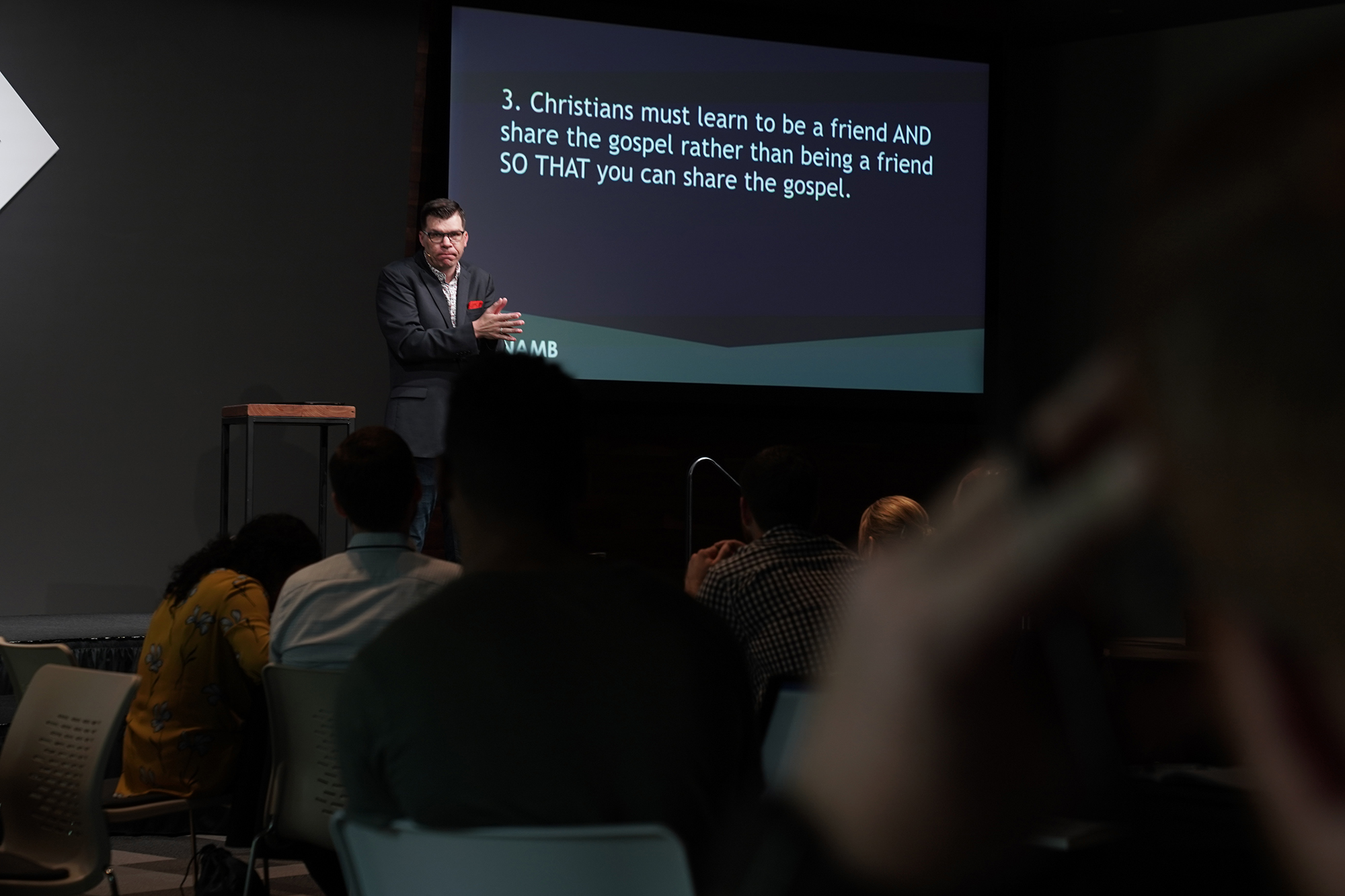
ALPHARETTA, Ga.(BP) — By the year 2050, the Muslim population in North America is reportedly projected to double. That figure might trouble some people in the United States, but pastor Micah Fries believes Christians have no reason to be concerned.

“If you ask the average American Christian to tell us what percentage of the U.S. is Muslim,” said Fries, pastor of Brainerd Baptist Church in Chattanooga, Tenn., “the vast majority give you a number from 10, 15, even 20 percent. The truth is, it’s one percent. Projections estimate it will grow to 2.1 percent by 2050.”
That statistic is one example of the misconceptions about Islam that tend to generate fear and confusion, preventing Christians from loving their Muslim neighbors well, Fries said.
The anxiety that regularly appears in the media spurred Fries and Whitfield, associate professor of theology at Southeastern Baptist Theological Seminary (SEBTS), to compile their book.
“Our desire is to create a conversation to help people see and become aware of an opportunity and encourage them to” seize the opportunity to reach their Muslim neighbors, Whitfield said ahead of the conference.
The event included speakers who contributed to the book: Kambiz Saghaey, director of Persian studies at SEBTS; Ed Stetzer, director of the Billy Graham Center at Wheaton College in Chicago; Bob Roberts, pastor of Northwood Church in Keller, Texas; Andy DeFelice, director of Moriah International; Bart Barber of First Baptist Church, Farmersville, Texas; along with Whitfield and Fries.
Topics ranged from the benefits of more multi-faith dialogue, clearing up misunderstandings about Islam, the need for religious liberty for all faiths and methods for sharing the Gospel with Muslims.
Stetzer shared about his experiences as a researcher and participant in interfaith dialogue that led him to rethink how interactions between people of different faiths take place.
“For years, many people of various faiths have promoted ‘interfaith dialogue’ in order to discover common ground and work together for humanity’s sake,” said Stetzer. “That sounds good, until we start digging below the surface.”
Stetzer and Roberts, in their respective talks, discussed the need for believers in different faiths to be honest about the distinctions.
“Pretending that we all believe the same thing does not foster dialogue but in fact prohibits it,” Stetzer said.
Both Stetzer and Roberts described how honesty and genuine love has opened doors to build relationships with Muslims around the world and opened doors to share the Gospel.
Fries, who has led his church to reach out to the Muslim community in Chattanooga, has seen several Muslims come to Christ. He also emphasized that Christians should not simply see the Muslim community as a project.
“We’re not doing this just because we want people to come to Christ. We value individuals whether they come to Jesus or not,” he said. “We want them to know that we value you as created in the image of God.”
David Tucker of ChristWay Church in Chattanooga was among those who attended the event.
“What this [event] has been amazing at is taking a concern that we know we should all have in terms of engaging with our neighbors, starting to make some of that real but making sure that, in doing so, we keep our theology where it needs to be,” he said.
Meredith Ringwalt traveled from Rome, Ga., with a group from Three Rivers Church to participate in the conference. She said that she has several Muslim neighbors where she lives, and the event encouraged her in sharing God’s Word and to trust that His Spirit will do the work.
The North American Mission Board will share video from the conference once it becomes available.
















